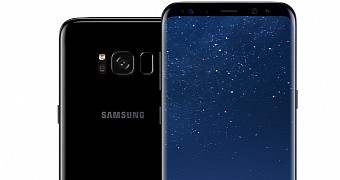Samsung isn’t doing well in China, a market where the Korean smartphone maker has faced strong competition from local manufacturers who offer premium specs on their devices and very affordable prices.
Samsung intends to host an event on May 18 to launch the Galaxy S8 and Galaxy S8+, while the actual release will take place on May 25, according to a report. However, it’s unclear why the company waited so long to make the Galaxy S8 available there.
In other markets, Samsung released the Galaxy S8 on April 21, and gradually rolled out the flagship to multiple countries around the world, but not China. Samsung is apparently looking to revitalize its brand reputation in China, severely affected by the Galaxy Note 7 discontinuation.
Bixby will get support for Chinese language next month
Samsung plans to provide Bixby with support for Chinese language next month. This means that Chinese customers who are planning to pick up the Galaxy S8 and Galaxy S8+ will be able to call upon Bixby in their native language and perform various tasks by tapping on the screen or using voice commands.
Perhaps, this is the reason Samsung decided to hold off on the Galaxy S8 release in China and offer customers from the country the full Bixby experience right after they purchase the phone. Bixby voice commands weren’t available at launch, and Samsung enabled the feature a while after Galaxy S8 units started arriving to customers.
Samsung isn’t among the top smartphone brands in China, as smartphone shipments dropped to just 3.3% in the first quarter of this year. Hopefully, the release of its latest flagship will help Samsung revitalize sales in China, after it lost almost 50% of its smartphone sales this year to local manufacturers like Oppo, Huawei and Vivo.
In order to compete with Chinese smartphone makers in the long run, Samsung intends to equip its upcoming Galaxy Note 8 smartphone with a dual-camera setup, very popular on offerings from Huawei or Vivo.

 14 DAY TRIAL //
14 DAY TRIAL //